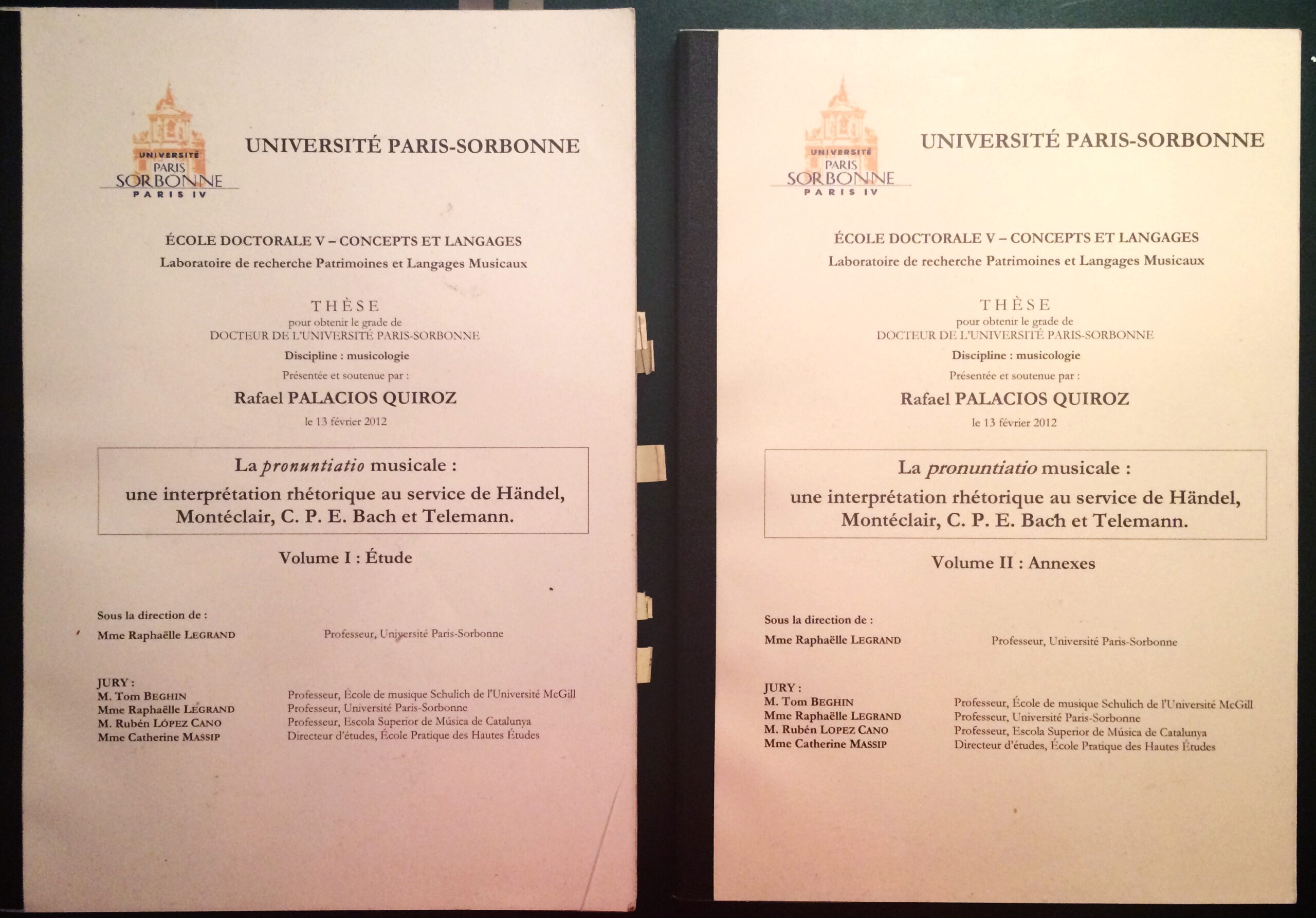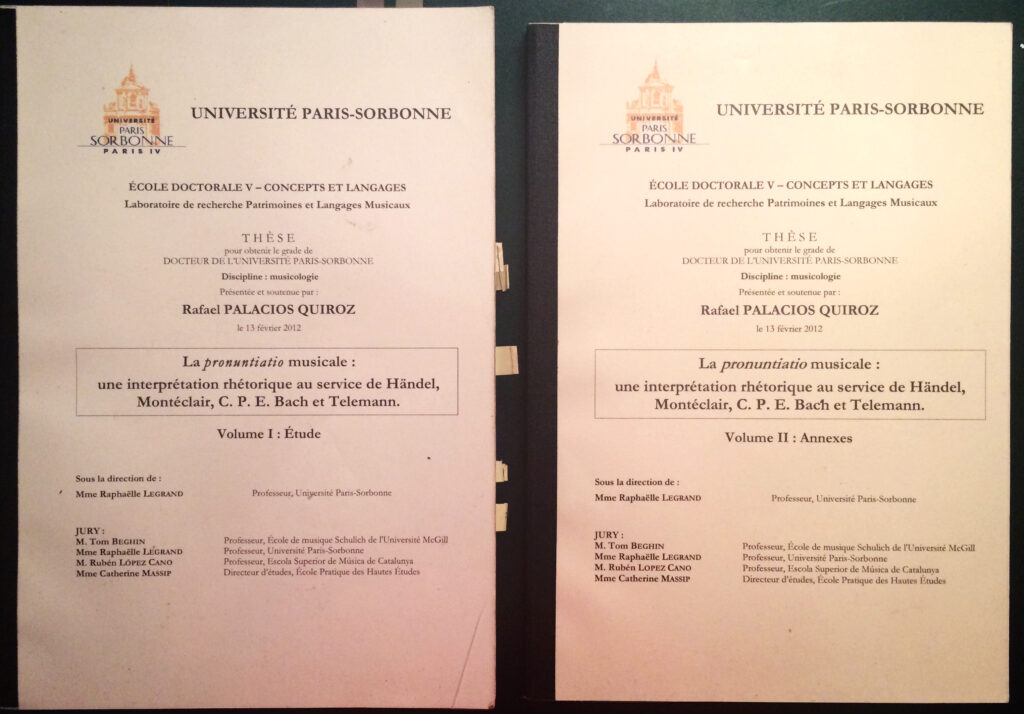

Let me share with you that on Friday, November 6, 18:00 Mexico time, I will be presenting my PhD thesis La pronuntiatio musicale: une interprétation rhétorique au service de Händel, Montéclair, C. P. E. Bach et Telemann. The thesis received highest awards from the Scientific Committee of the Paris-Sorbonne University.
It will be a great honour for me to share the microphone with Dr. Esther Hernández Palacios on this occasion.
About my thesis:
The ultimate goal of this work is to provide the performing musicians with the means to build for themselves an interpretation program, or rather several diverse and varied interpretation programs. The function of rhetorical analysis is not only to highlight the structure of a work (dispositio) and its decoration by labelling rhetorical figures (elocutio), but also to create a tool for music analysis related directly to the interpretative gesture (the actio, and more precisely, the pronuntiatio).
In other words, our work does not aim at a musicological reconstruction « per se », as Nattiez would say, but rather seeks to develop a set of modular rhetorical strategies for musical analysis regarding interpretation. It also seeks to illustrate how rhetorical strategies may be applied to generate ideas, enrich and channel musicians´ imagination and to advise on the appropriate gesture and energy when performing music.
This research project is meant to develop, beyond the present thesis, a text to popularise the music of the baroque period, taking into account the heritage of the pronuntiatio of the ancient times, and to bring it to the attention of musicians of the 21 century, whose concern would be to approach this music with integrity, responsibility, and the knowledge of the facts. Indeed, it seems important to restore the influence conferred to aesthetics by its own authority. Certainly, we will distance ourselves from simple projections governed by the unique concern of purely pleasing (delectare), that for the most part, only blandly reproduce media expectations or lower the flag in the face of market pressures.
The nodal point of this work is our proposal for an “informed” musical pronuntiatio. Our effort will focus on the construction of an explanatory model of performative analysis, allowing the interpreter to introduce idioms bringing in the intelligence of this particular oratory aesthetics.
A word of precaution: It is evident that schenkerian analytical system, or any other system of analysis, has its limits, so does musical rhetorical analysis – it says some things about the work and omits others. Thus, our thesis is not particularly historical, nor do we propose a philological exercise. We present a pronuntiatio model.
This thesis constitutes a model based on the tradition that has known disruption and that may seem distant to us, but that we can recover through the updated knowledge of musical rhetoric. It is obvious that we contribute to musicological research where rhetoric has already been rehabilitated, and here we are indebted to a good number of translations and literature. It is from this recent heritage that we want to generate specialised material for interpreters.
When understanding embraces an overabundance of meaningful choices
In short, the purpose of this work is to bring an overabundance of meaningful choices to the interpretation of musical pieces recognising that these meanings are not solely entrenched in history (even though this anchor is unavoidable), but are of strictly artistic nature. It is synonymous with the openness that is offered by infinite possibilities embodied in any musical orator. This research seems to us legitimate and urgent if we want to strengthen the links between musicology and practice, because though the thesis is based on the history of music, it is meant to lead to a better interpretative knowledge.
See you you this Friday, November 6, at 18h Mexico time here:


0 responses on "Presentation of my doctoral thesis"